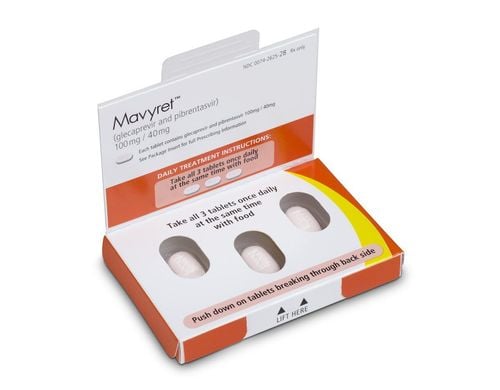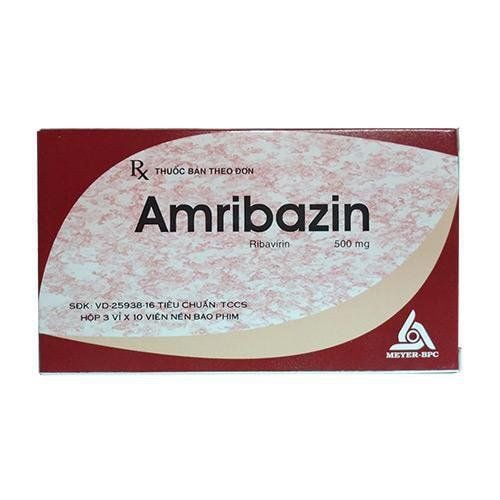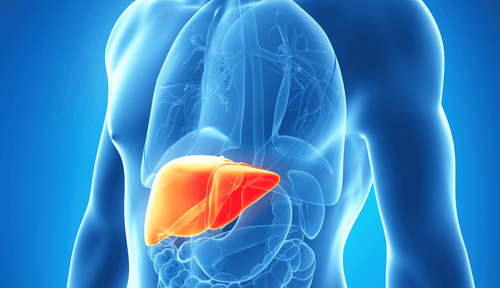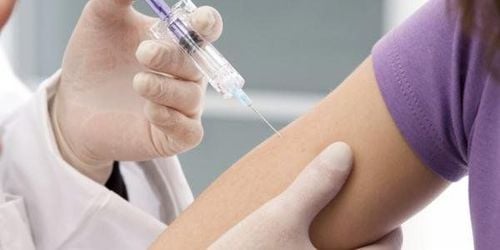This is an automatically translated article.
The article was professionally consulted by Specialist Doctor II Huynh Thi Diem Thuy - Vaccine Consultant - Pediatrics - Neonatology Department, Vinmec Central Park International General Hospital.Hepatitis A is a contagious disease. The disease occurs in almost everyone and often leads to dangerous complications. Both adults and children need the hepatitis A vaccine to prevent the disease.
1. Should hepatitis A be given to children?
Hepatitis A is a serious infection of the liver caused by the hepatitis A virus. The disease can progress from mild to severe, from weeks to months.Hepatitis A is a disease that can be transmitted from one person to another through eating, drinking, drinking water, or coming into contact with objects contaminated with the feces of an infected person, even in very small amounts.
Hepatitis A patients hospitalized for treatment account for about 20%, that is, 1 in 5 patients is hospitalized. People with hepatitis A can easily pass the infection on to family members. The disease can be prevented by vaccination.

Người lớn và trẻ em đều cần tiêm phòng vacxin viêm gan A để phòng tránh bệnh
2. Symptoms of Hepatitis A
Symptoms usually appear on average 4 weeks (15-50 days) after infection with the virus and usually last less than 2 months, in some cases, up to 6 months. However, there are some people who get sick without any symptoms. People with hepatitis A may have the following symptoms:Fever. Tired. Loss of appetite. Nausea and vomiting. Dark urine. Yellow skin, yellow eyes. Abdominal pain in the right lower quadrant, especially when pressed. Stools that are discolored and looser than usual. In children under 6 years of age, often infected with hepatitis A virus, there will be no symptoms (70%), if present, usually there will be no jaundice. 70% of older children and adults will have jaundice.
To determine if a person has hepatitis A, the doctor will ask about symptoms, examine the skin and eyes for signs of liver, or examine the abdomen to determine if the liver is larger than normal. are not.
Then the doctor will order a blood test to see if the liver's function is abnormal and to determine which virus is causing the hepatitis.
Trắc nghiệm: Làm thế nào để bảo vệ lá gan khỏe mạnh?
Làm test trắc nghiệm kiểm tra hiểu biết về gan có thể giúp bạn nhận thức rõ vai trò quan trọng của gan, từ đó có các biện pháp bảo vệ gan để phòng ngừa bệnh tật.3. Who should get the hepatitis A shot?
Who should be vaccinated against this disease are:All children over 1 year old. People with chronic liver disease. The patient was treated with coagulation factor. Children and adolescents living in areas with an outbreak of hepatitis A. To prevent the disease, you need at least 2 doses of the vaccine at least 6 months old or can be given at the same time with other vaccines. For children, the first dose can be given when the child is 12 months old. For people at high risk of hepatitis A Hepatitis A vaccine should not be given When there is a severe allergic reaction to the first dose of hepatitis A vaccine. People who have had a severe allergic reaction to any component of the vaccine. All hepatitis A vaccines contain aluminum and some contain 2-phenoxyethanol. People with moderate or severe disease should postpone the injection. In mild cases, injections can be given.
4. Notes after vaccination against hepatitis A
Hepatitis A vaccine can cause post-injection reactions. Usually mild reactions, severe reactions are very rare.Mild reactions usually last 1-2 days with the following symptoms:
Headache: Available in both children and adults Anorexia: Mostly in children. Fatigue: Mostly in adults.

Trẻ sẽ cảm thấy chán ăn sau khi tiêm vaccin phòng viêm gan A một đến hai ngày
Pay attention to monitor reactions after local injection for at least 30 minutes. When there are unusual signs such as: high fever, changes in behavior, severe allergic reactions including difficulty breathing, hoarseness, wheezing, hives, pale skin, fatigue, dizziness, rapid pulse ... then the doctors will handle it promptly.
Vinmec International General Hospital uses a source of high quality vaccines, of clear origin, suitable for the age to be vaccinated, ensuring safety from registration, storage to use.
Before vaccination, all children are screened before vaccination with pediatricians - vaccines to help children ensure the best health when vaccinated. The doctor will advise the family on the best preventive vaccines for each age group according to the latest recommendations of the Ministry of Health & World Health Organization as well as how to monitor the reaction after vaccination. In addition, Vinmec Vaccination and Consulting Room has other advantages such as:
Experienced and professional team of pediatric doctors and nurses, understanding children's psychology and applying effective pain relief for children during the process. vaccination. 100% of vaccinated children are monitored and re-evaluated before leaving. Post-vaccination monitoring room is fully equipped with emergency facilities; the team of doctors - nurses are trained in anaphylaxis emergency management to ensure timely and correct treatment when an incident occurs. The vaccination room is airy, with a play area, helping children feel comfortable as if they are walking and have a good mentality before and after vaccination.
Please dial HOTLINE for more information or register for an appointment HERE. Download MyVinmec app to make appointments faster and to manage your bookings easily.













